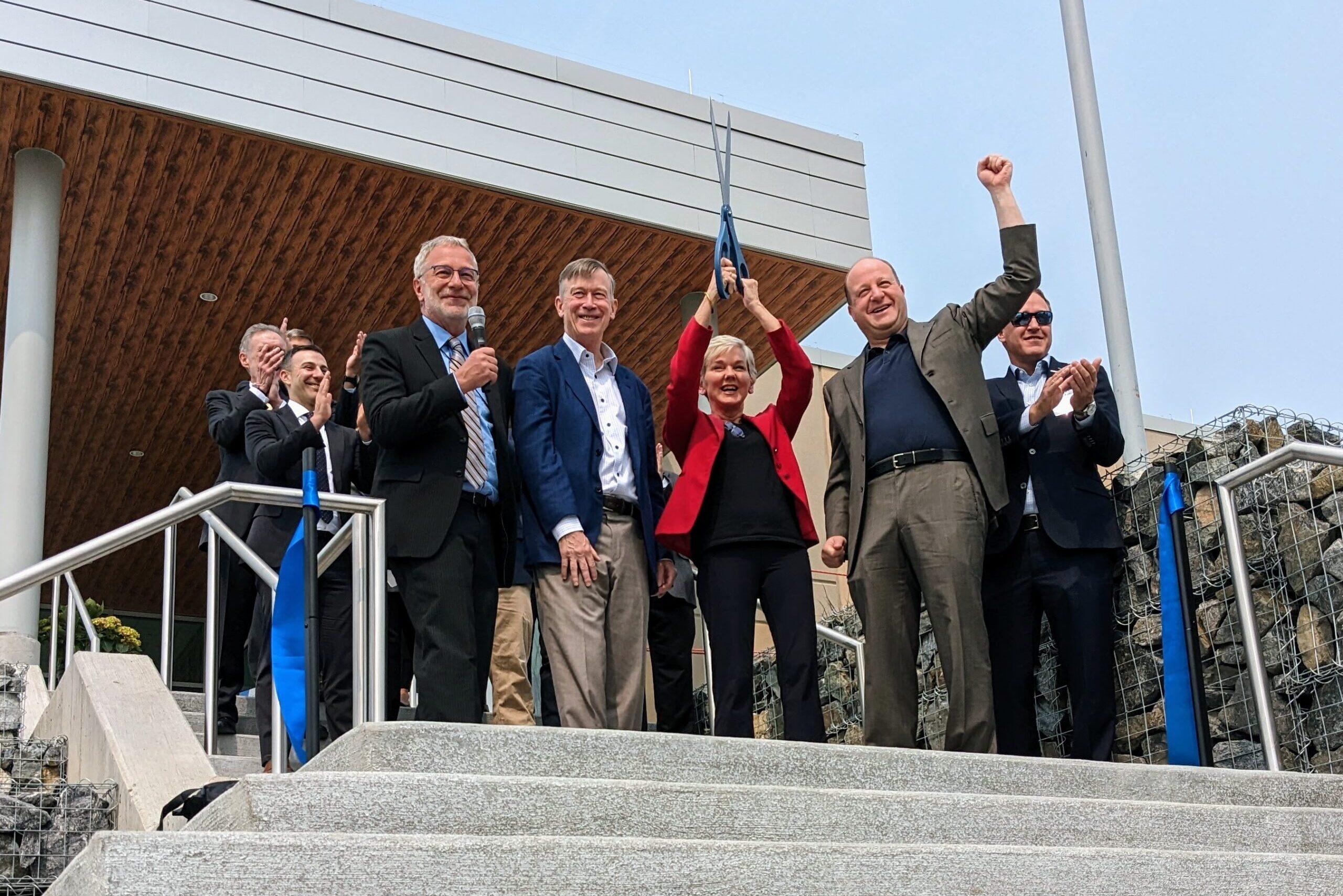
The National Renewable Energy Laboratory is set to receive $150 million in new federal funding to continue rapidly expanding its research campuses in Arvada and Golden.
U.S. Secretary of Energy Jennifer Granholm and Democratic U.S. Sen. John Hickenlooper visited Colorado on Monday to announce the investment, which is funded through the Inflation Reduction Act.
The landmark climate legislation signed into law in 2022 will help pay for a wide range of planned projects, including an improved computer model to test additions to the U.S. energy grid and a research facility to develop sustainable aviation fuels.
In addition to attracting new jobs to Colorado, Granholm said the funding would help the laboratory continue its ongoing work to commercialize green energy technologies.
"That is the power of NREL. And today, we are looking at an engine that is gaining more horsepower," Granholm said.
The announcement came as the campus celebrated the completion of its first new building in nearly a decade. The Research and Innovation Laboratory contains 15,700 square feet of space to house teams of scientists focused on renewable energy and energy efficiency. Gov. Jared Polis joined Granholm and Hickenlooper for the ribbon cutting.
More projects are already in the pipeline. The State of Colorado is leading efforts to build the Global Energy Park, a new office park for green energy startups located on NREL's campus in Golden. Just to the south, the laboratory is repurposing the Camp George West military base into the South Table Mountain Energy Park, which will serve a similar purpose.
Those expansion projects are a small portion of the federal government's plans to invest nearly $400 billion in green energy and climate adaptation through the Inflation Reduction Act. Beyond direct investments in national laboratories, the legislation also contains generous tax credits to support companies willing to build electric cars, wind turbines, solar panels, batteries and new hydrogen plants in the U.S.
Republicans have pushed to cut that spending in ongoing debt ceiling negotiations with President Joe Biden.
During her visit, Granholm noted the incentives have already spurred companies to announce dozens of new factories across the country. Any effort to reduce them would imperil a "manufacturing backbone" designed to support the transition to clean energy.
"I hope rational minds will see that," Granholm said.









